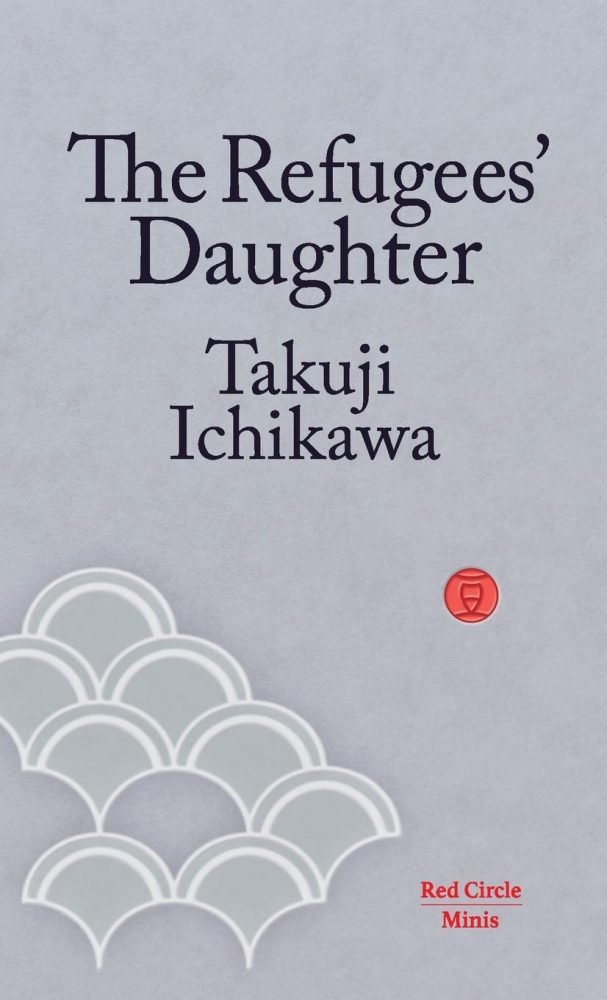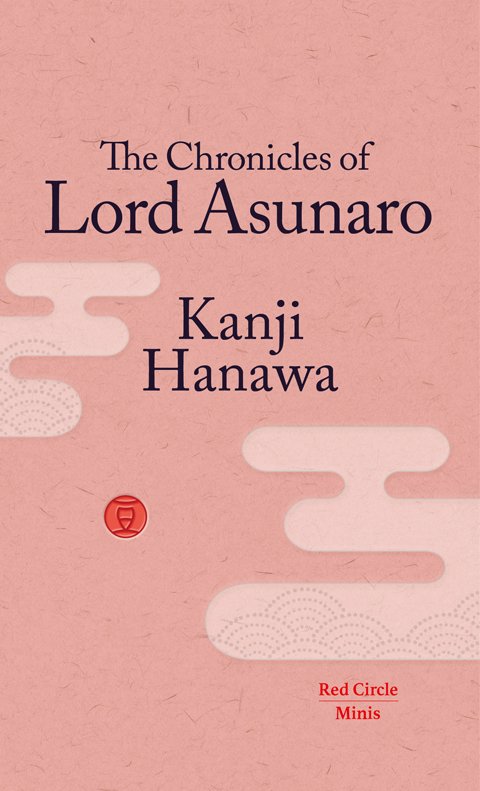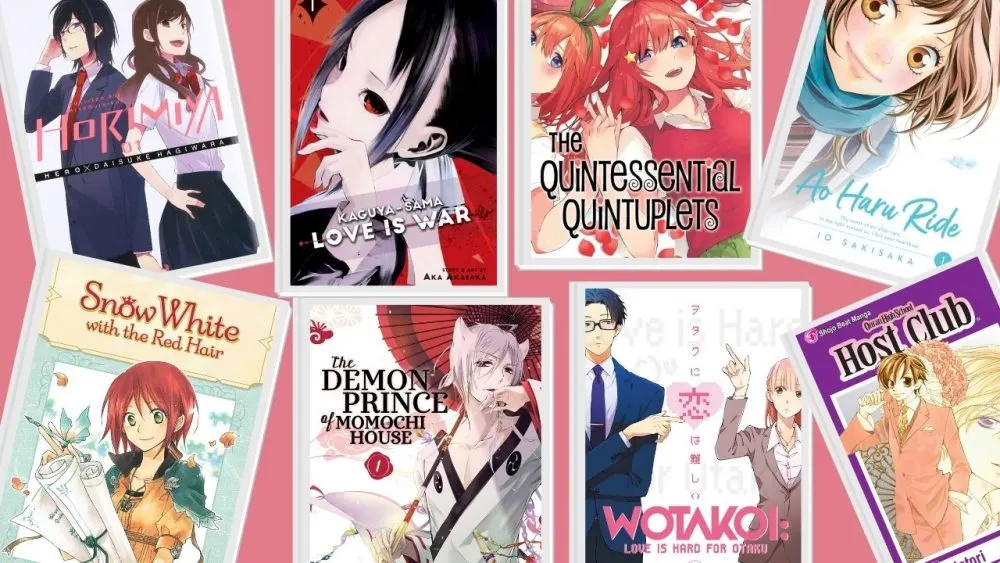At the beginning of 2019, Red Circle launched three short stories, all of which we dearly loved. They were fresh and original Japanese short stories with enlightened themes and page-turning plots. Now, as 2019 feeds into 2020, we have two new Red Circle Minis in translation from two astonishingly talented translators.
Each book is wholly unique and, now that we’re five stories deep, Red Circle have firmly cemented themselves as a publisher of short stories that has a level of quality so reliably high that their books could be bought before even reading the title.
In short, these stories are excellent. They’re fresh, vibrant, and have stunning cover art that perfectly reflects the top-tier quality of writing found inside.
The Refugees’ Daughter by Takuji Ichikawa
Translated from the Japanese by Emily Balistrieri

There is a universe within this little story. As far as concepts and philosophies go, it contains multitudes. The Refugees’ Daughter begins with an almost dreamlike monologue from our young narrator, Aimi, as she attempts to explain a gate with a white world that exists on the other side, as well as The Builders – possibly ancient, maybe godlike, potentially otherworldly beings – who created it.
This monologue is interrupted by the story proper, which is a mostly post-apocalyptic tale that spans just sixty-five pages. The modern world has been ravaged by climate change and a kind of natural conclusion in the rise of nationalism, right-wing politics, and capitalistic greed.
There are government soldiers, anti-government solders, and The Complex: a word used to encompass the mass of enormous conglomerates that control the market, money, and power. In a story in part reminiscent of Cormac McCarthy’s magnum opus, The Road, Aimi and her family are journeying across the land as refugees in search of safety and shelter.
They meet other families along the way, avoid danger and armed soldiers, and traverse both arid landscapes and concrete labyrinths. Aimi also hopes to find her young lover, Yusuke; he is her motivation, her driving force through all of this.
The Refugees’ Daughter, the fourth of the Red Circle Minis by Red Circle, is the most ambitious short story that Red Circle have published so far.
In such a short span, it transforms and folds over itself again and again, attempting – usually succeeding and sometimes failing – to cover so much philosophical ground in both the events of the story and the discussions had by the various people Aimi is surrounded by.
While it begins on an ethereal note and then morphs into a post-apocalyptic story of desperate refugees, it quickly grows into a parable, a fable, a warning against what we are heading towards.
By the end, The Refugees’ Daughter is a loaded gun aimed straight at the capitalist tyrants who monopolise our economies, strip our lands of their resources, choke our politics, and turn ordinary people into grey, nameless nobodies.
As an anti-capitalist myself, I was clenching my teeth and my fists with intense agreement as the story’s message became clear. That said, it is delivered in an increasingly expository and clunky manner as the story wraps up.
It’s not perfectly executed. Its tone is inconsistent – even incoherent – at times. But The Refugees’ Daughter is a socialist story with lofty ideas that are entirely grounded in, and inspired by, real-world fears and issues that we can all see surrounding us right now.
It’s a book that I fiercely identified with, and it’s one that is translated with enormous precision and expertise by Emily Balistrieri. While the plot may be inconsistent and built to its conclusion far too quickly, it’s the language of this story in translation that really carries it, conveys the book’s message artfully, and has us feeling and fearing for its characters immediately.
The Chronicles of Lord Asunaro by Kanji Hanawa
Translated from the Japanese by Meredith McKinney

On the final page of this story, author Kanji Hanawa admits to the strangeness of what he has done here: chronicling the life of a largely unremarkable Japanese lord through a blend of historical fact and fiction.
His defence being that he finds Lord Asunaro to be an early example of an ordinary modern man – a man who “became what anyone in his situation – a life of leisure, deprived of the means of doing anything truly fruitful – would become. In other words, a man like you or me.”
In the time of Ieyasu Tokugawa, following the legendary and bloody Sengoku Jidai, Asunaro was an unremarkable young lord of a warrior family, now learning to lead in a golden peacetime. Born into wealth, power, and luxury, Asunaro was a petulant child, slow to learn, disrespectful, restless, and disinterested.
A spoiled prince, in short. And in this, the fifth of the Red Circle Minis by Red Circle, renowned Japanese author, academic, and translator Kanji Hanawa chronicles the life of this young lord. And it really is a life, far more (or less) than a legacy or a series of triumphs.
Because, as Hanawa himself remarks, Asunaro could do no more during his life than live it, now that the war and strife that had plagued Japan for so long was at an end.
The Chronicles of Lord Asunaro, translated with expert wit by Meredith McKinney, takes this young lord’s entire life, from his school days to his inheritance of the title of Lord, and shrinks it down to fifty-six entertaining pages.
Though Asunaro spends much of his time as a bored and rude – frankly useless – child, he later develops a love for literature and poetry, writing poems of love, lust, and longing. These poems prove to be a sign of things to come, as Asunaro went on to father approximately seventy children and enjoy the company of over one hundred women.
He lived in excess, both as an aesthete and a man of luxury. For, as Hanawa reminds us, what else would any of us do in his position, trapped in a prison of wealth and beauty with nothing else to pass the time. And so, there was poetry and there were women.
This is what makes Asunaro such a curious and entertaining historical character. And Hanawa should be admired for recognising this, seeing the fun that can be had with it, and thus turning it into a fun short romp of historical fiction.
This is not a perfect story, however. Hanawa admits that much of it has been heavily fictionalised, and that’s fine – and crystal clear for the majority of the tale. But as we move towards the end, the wallpaper peels and the paint cracks – the voice that has guided us on this journey morphs from that of an engaging narrator to that of a dry historian.
It’s a confusing and jarring shift that almost gives the impression that the narrator gave up the pretence. If it were a film studio, we could imagine the boom falling on an actor, stage lights hanging in the shot, and the walls of the set collapsing. This stumble at the finish line is a shame, but is the only real blemish on an otherwise hilarious and engaging tale of a young lord living a fantastic – and fantastical – life.



